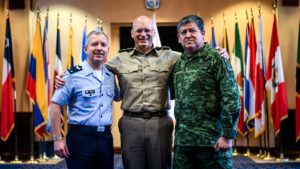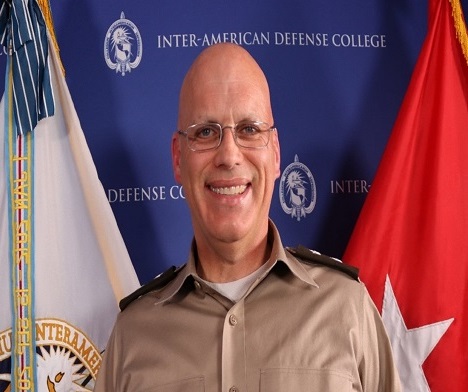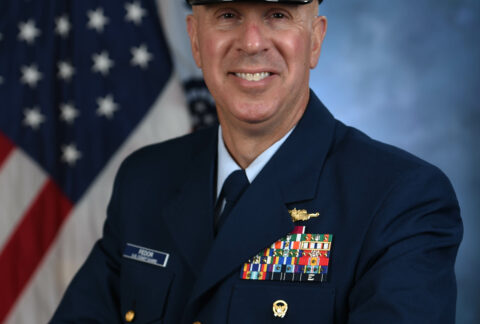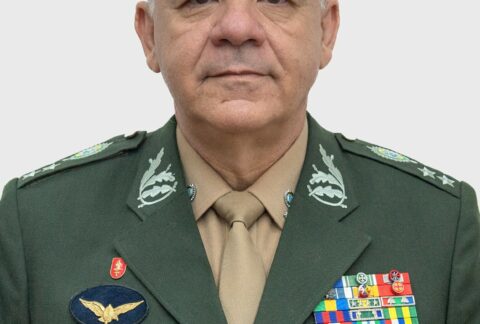The Inter-American Defense College (IADC) is turning 60 this year. To celebrate the date, Diálogo visited the educational institution, located at Fort Lesley J. McNair, Washington, D.C., to talk to its director, U.S. Army National Guard Major General James Taylor.
Diálogo: How relevant is IADC today?
U.S. Army National Guard Major General James Taylor, IADC director: This year, the IADC celebrates its 60th anniversary. At our founding, our charter was continental defense. Last year, the Organization of American States’ (OAS) General Assembly formally recognized us by unanimous vote in a resolution as the standard for joint, interagency, intergovernmental, multinational security, and defense education.
The hemisphere sends its future leaders here to study. The promotion rate of our graduates to flag officer or ambassador is 30 percent. No other senior service college in the hemisphere has that kind of promotion rate. Right now, 11 of the ministers of Defense/Security or chiefs of Defense serving in the hemisphere are our alumni. Eight of the ambassadors serving at the OAS or here at IADC are also our alumni.
We are the only accredited truly international university on this planet. Two things make us an international university. First, our students and staff are international and vastly outnumber our host nation personnel. Secondly, our governing body is an international organization. There are two other truly international universities, the NATO Defense College and the U.N. University. Neither of those two, however, are accredited to grant a degree. They do so through partner organizations. We are the only one.
Lastly, we are exceedingly relevant because of our intrinsic diversity. We are diverse in gender, culture, and language. We do everything in the official four languages of the hemisphere. At any given time, between 14 and 17 countries in the hemisphere are represented here. We’re comprised of military, law enforcement, government civilians, and diplomats. And 25 percent of our staff is female.

Diálogo: What challenges does Latin America face nowadays that, consequently, are IADC’s main focus?
Maj. Gen. Taylor: The challenges that face our hemisphere can be characterized as complex, multidimensional, transnational problems that are multi-domain. As we know from mathematics, a complex problem is one that requires more than one solution. A single solution does not solve a complex problem. So, no single country by itself is going to solve a complex, multidimensional, transnational problem. Within a country, a single agency will not solve the problem, and a single country acting by itself will not solve the problem.
Therefore, whether the problem is transnational organized crime, refugees, or illegal and unregulated fishing, a single agency within a country, or a single country by itself will not solve the problem. Solving complex transnational multidimensional problems requires interagency collaboration within a country, and multinational collaboration outside a country or they do not get solved.
The IADC, this hemisphere’s university, educates students to become critical thinkers, who are experts on inter-American security and defense, to be able to function in an interagency environment within their country, and a multilateral environment outside their country to solve complex problems and become strategic leaders.
Diálogo: The so-called new threats affecting Latin America — even though considered extremely important issues — can be considered more related to security than to defense?
Maj. Gen. Taylor: The OAS refers to these as multidimensional threats, and the mechanism to address them is referred to as multidimensional security. It’s not a question of whether they are related to security or defense, they are related to security and defense. Both must work together collaboratively to address the threat using the resources, and legal authorities at their disposal.
Diálogo: Most strategic analysts would say, just a few weeks ago, that traditional war is dead. However, the invasion of Ukraine by Russia proved them wrong. Will this fact affect IADC somehow, especially in terms of its curricula?
Maj. Gen. Taylor: I would offer that the strategic analysts who published that traditional war is dead not only forgot their history, but also could benefit from a review of classical theorists like Clausewitz. Part of our educational curriculum focuses on conflict analysis and resolution, security and defense policy, international relations, and strategic thinking.
We make a concerted effort to ensure that we include current events in the world, as well as what is being discussed in the Committee on Hemispheric Security in our courses, small group discussions, and our workgroups. Our education prepares a future strategic leader by teaching them how to analyze and assess problems. And our use of current material in discussion and work groups allows them a mechanism to apply it.
Diálogo: You’ve been IADC’s director since July 2018. What was your biggest challenge and the most important lesson learned?
Maj. Gen. Taylor: Let me answer that question by first saying that I am convinced that the IADC is the best place to serve on this planet. I don’t believe an organization exists that has its reach or level of acceptance, and its rewards. The biggest challenge and most important lesson learned is the same. Orchestrating the efforts of and communicating across cultures require active effort and yield tremendous value.
The IADC is a blend of cultures. We have an academic culture with our civilian PhDs. We have a civilian, military, officer, noncommissioned officer, interpreter, and gender diverse culture. We have 14-17 countries with their unique traditions, values, and culture. And we have four languages spoken at any given time.
Additionally, about 50 percent of our personnel rotate every summer. So, it’s a new team every July. As a result, we must actively work to make sure that this blending of culture is harmonious and that we learn to communicate effectively. All of this is bound by our institutional value of mutual respect that enables us to successfully bring many cultures together.
Diálogo: What legacy do you want to leave for your successor?
Maj. Gen. Taylor: An organization whose standard is excellence, whose degrees are relevant and current, and whose extension and research add value to the hemisphere.
To see the full interview with U.S. Army National Guard Major General James Taylor, IADC director, please click on the following link: https://dialogo-americas.com/articles/u-s-army-national-guard-major-general-james-taylor-iadc-director/#.YqC72MXMLZ4









